Providence provides again. After three weeks in Cyprus, the choice of destination was determined by one and only one question: what was the cheapest flight out of Larnaca? Wherever it went, that is where my next stop would be.
As it happened, the answer was Bucharest. I missed my mother’s trip to Romania by just under a week, too, but the timing worked in my favor. After having booked the tickets, a Georgian friend sent a facebook message about a ‘summer camp’ for students from central and eastern Europe interested in ecumenism and improving their English. The target age seemed to be university students in their twenties, or late teens – “youth” by the European definition. A little past the upper limit, I wrote the organizers to see if they were interested in having a native-English speaking ecumenist join them, and offer a lesson or two.
The idea of spending ten days in a castle in northeastern Romania for no more than the cost of getting there was appealing, too, I admit. A few hours in Bucharest gave us time to visit the patriarchate (where we got parking only because our host told security that I was a theologian visiting from the Vatican), and a walking tour of the city. Then it was a night train to Roman.
The Lingua Franca Summer Camp was organized by the European Region of the World Student Christian Federation, an organization i had somehow not encountered before. It started originally in the early nineties at the collapse of the Soviet Union as a way to promote Christian leadership and provide English-language training for young Christians from behind the Iron Curtain. The length of the program has reduced dramatically in the last 20 years, from three months to ten days, but still serves many of the same countries. All the participants already had some mastery of English, and some involvement in ecumenical student movements. I was privileged to lead a small discussion group of advanced English speakers from Armenia, Georgia, Ukraine, and Finland during language training, and participate in the program the rest of the week. The other participants or staff came from Armenia, Bulgaria, Georgia, Germany, Finland, Ireland, Italy, Lithuania, Moldova, Poland, Romania, Slovakia, UK, Ukraine, and US.
The setting is the almost surreal nineteenth century neo-gothic Sturdza Castle, near the village of Miclăuşeni. Built on the site of a fifteenth century manor estate, the castle once boasted a library of 60,000, including several rare first editions. Most of these were lost during the second world war, burned as fuel or stolen either by Nazi or Soviet soldiers. In 1947 the heiress donated the property to the Romanian Orthodox Metropolitanate of Iasi, and established a monastic community there. Only six years later, however, Communist authorities seized the land, and used the castle successively as a munitions depot, museum of military metallurgy, and hospital for children with severe mental disabilities. Villagers looted some of the original furniture, and other pieces were lost in two fires over the decades. As late as 2002, the place was still in complete disrepair. Recent work to restore it seems to have done a great job, but there is still a lot to be done – many of the original frescoes and decorations are so ruined, it seems more a question of renovation than restoration. A retreat center has been started, and the metropolitanate hopes to make a museum of part of the place. An iconography workshop already takes part of the space in the monastery complex, and the community of sisters numbers about forty.
The educational piece was organized in cooperation with the metropolitanate, under the guidance of the vicar for education, Archimandtrate Hrisostom Radasanu, a graduate of the Orientale in Rome. An articulate and erudite young cleric, his presentation to the group was apparently his first ever teaching occasion in English, and it was nearly flawless. I imagine the ecumenical world will be hearing his name a lot more in the years and decades to come, and I look forward to it.
The best part of the experience was, naturally, the people who participated. I met some amazing young ecumenists and future leaders. I learned a great deal from them, about everything from the specter of Russian imperialism, perceptions of American politics and the degree to which we don’t always appreciate our country, to ecclesiastical reality in different countries and experience with Islam, to the situation for gay rights in Georgia (In May, a demonstration of about four dozen in support of gay rights was overwhelmed when something like 35,000 counter-protesters turned out). I also learned a bit about Romanian Orthodox Ecclesiology in practice, like the fact that they will not ordain someone without a pastoral office (ie, a parish or chancery role) that is open and requires a deacon or presbyter. I have to go read Fr. Ron Roberson’s doctoral dissertation now…
Two familiar faces from a great youth conference I attended in Sarajevo three years ago (!) were there too: Pip, an implacably irenic North Irish Anglican PK, now father of a beautiful daughter himself, who brought no less than six bodhráin with him; and Paweł, the Polish editor-in-chief of the WSCF-E publication Mozaik, whose English is more British than most Englishmen I know.
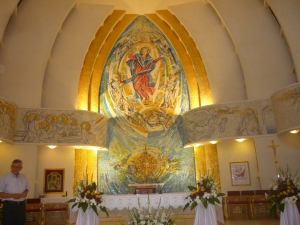
Catholic Cathedral of Mary, Queen of Heaven, in Iasi. Bishop Petru Gherghel’s motto is ‘ut unum sint’.
I met a Georgian who could be a Republican from the Peach State, an inquisitive Ukrainian with a passion for learning, Romanian teens whose Byzantine chant was angelic, a fey Finn of Russian roots with a compelling story, and an awesome Armenian foursome. My new Slovak friend is the very image of a central European intellectual, with a cigarette in one hand and a book on existentialism in the other, slightly unkempt beard and untucked dress shirt completing the ensemble. A Bulgarian duo were inseparable, indefatigable, and inspiring. The German regional secretary proved a kindred ecumenical spirit.
I could go on, and in more depth. I was impressed by the quality of each, and by the opportunity they had here. I had support from some key ecumenists in my years post-college around the US, but there was nothing like this for us to tap into, to network with ecumenists our own age. Europe may struggle with its Christian identity, but at least religion is still recognized as enough a part of culture that its diversity is something to be addressed, rather than ignored. Western Europe may be increasingly secular and unprepared to comfortably address religious questions, but there is a light in the East.

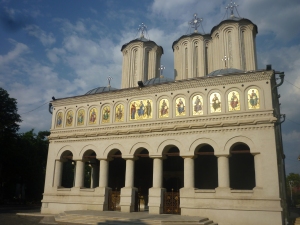
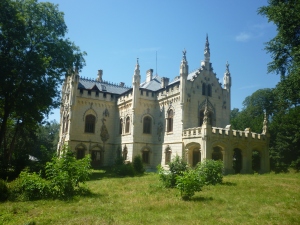
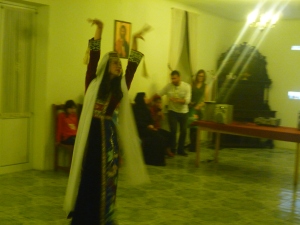
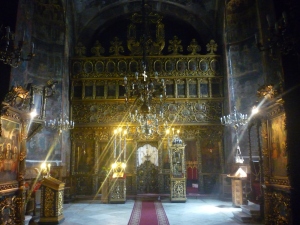
Thank you for sharing valuable information. Nice post. I enjoyed reading this post. The whole blog is very nice found some good stuff and good information here Thanks..Also visit my page questions for couples.